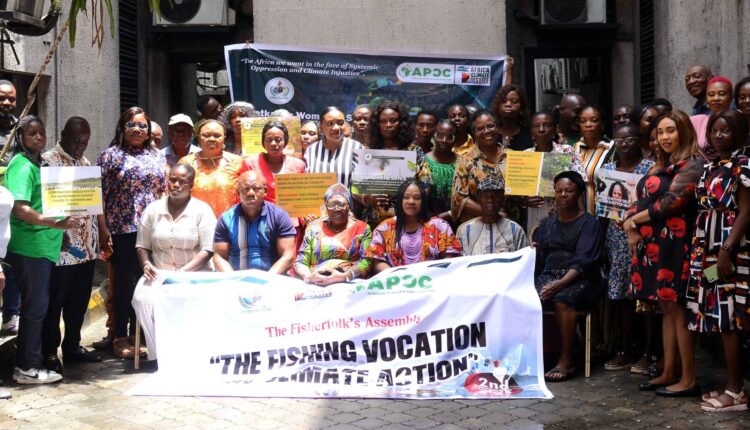Some fishermen and women, under the aegis of the Fisherfolks Peoples Assembly, have expressed growing concerns about the worsening effects of climate change on fish populations and other seafood.
The fishers said that they no longer catch enough fish due to rapidly declining fish populations, which they blamed on pollution, rising sea levels, and changes in water temperature, among others.
These concerns were raised during a meeting organised by the Kebetkache Women Development and Resource Centre in Port Harcourt on Thursday.
Justice Tawiah, a member of the Fishing Association in Delta, highlighted that the livelihoods of fishermen and women were being severely affected by climate change crises.
He noted that many fishers were leaving the industry as they could no longer catch a significant number of fish and seafood.
“Our livelihoods are being impacted by the activities of artisanal refineries in the coastal communities and a recent surge in the dumping of chemical waste and refuse into our waters,” he explained.
Tawiah further identified sea piracy, robbery, and the encroachment of shallow waters by commercial fishing vessels as additional challenges to their operations.
“We can no longer go to the areas where we used to catch fish because we risk being kidnapped, or having our boat engines forcibly taken from us,” he said.
Mr Fubara Samuel, the Coordinator of the FishNet Alliance in Rivers, pointed to insecurity in the waterways as one of the main issues affecting fishing operations in the state.
He explained that regular criminal attacks have made it difficult for fishers to go out at night, which is typically the best time to fish due to high flowing tides.
“Moreover, with reduced fish populations in the high seas, we are now seeing trawlers (large commercial fishing vessels) entering our territory (shallows waters) to catch fish.
“These encroachments by trawlers have further worsened the situation, making it harder for us to sustain our livelihoods,” Samual lamented.
Mrs Blessing Amibok, a seafood business owner, raised concerns about the high cost of petrol and diesel, which was making it increasingly difficult to keep their businesses afloat.
“It cost about N200,000 to fuel each fishing boat, and often our fishers return after three days at sea without catching any seafood, such as crayfish.
“These losses have led many fisherfolk to leave the business, and the reduced catches have driven the prices of fish and seafood in the markets,” she explained.
Dr Emem Okon, Executive Director of Kebetkache, a Rivers-based advocacy group, stated that the meeting was organised as part of efforts to address the impact of climate change on fishing operations.
She revealed that fishers from selected communities in Akwa Ibom, Bayelsa, Delta, and Rivers were mobilised to participate in the ‘Counter Conference of Parties (COP)’ at the United Nations COP29.
“The Counter COP is a programme of the African Climate Justice Collective, created for Africans to share their views, opinions, and experiences on how they are affected by the climate crises.
“These perspectives and demands are then forwarded into the broader Counter COP space, where they are integrated into the Counter COP climate change declaration.
“So, we are meeting with the Fisherfolks Assembly in Nigeria to present their demands to the government, corporations, and outline the kind of negotiations they expect at the UN COP,” Okon explained.
She added that the meeting with the fishers was being held simultaneously across Africa in preparation for the African Peoples Counter COP in Senegal from Oct. 7 to Oct. 11.
Okon further stated that Kebetkache was championing the cause of fisherfolk to defend their livelihoods, strengthen solidarity, and mobilise female fishers to participate in the Counter COPs.
“Kebetkache hosted the Women Climate Assembly in 2021 in Port Harcourt and again in 2023 in Lagos, as part of wider efforts to mitigate the impact of climate change on fisherfolk,” Okon concluded.


